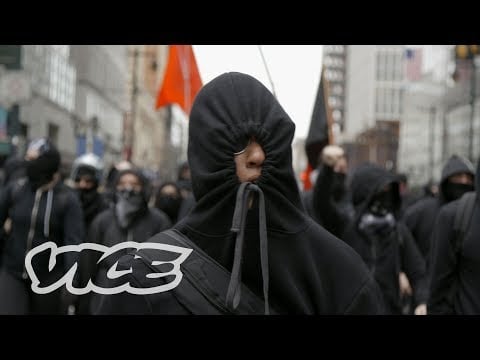Mrs Thatcher’s 100th birthday was recently marked, and a few commentators, not all of them friendly, have remarked on her influence and the way that she still casts a shadow over our times.
Adrian Wooldridge at Bloomberg is a columnist I follow. I like and dislike some of his stuff. (His book on Meritocracy and the co-authored one with Alan Greenspan on American capitalism are both excellent, in my view.)
Let’s go:
Far be it from me to spit upon the grave: Thatcher was a great prime minister, up there with William Gladstone and Winston Churchill, and Thatcherism was a necessary response to a set of pressing problems. But a serious politician deserves a serious assessment: We need now to address the fact that the Conservative Party to which she devoted her life lies in ruins, that its sister Republican Party has been hijacked by an authoritarian populist, and that Thatcher herself bears some responsibility for this. Indeed, she was a leading player in the transformation of Anglo-Saxon conservatism into a revolutionary political doctrine that may have destroyed conservativism itself.
The idea that Mrs T’s brand of political views were “revolutionary” only works if you have a particular view of what a revolution means. Mrs Thatcher thought that the post-1945 “settlement” – to give it a term, of high progressive tax, high regulation, nationalised industry, powerful unions, Keynesian demand management, state-run schools, socialised medicine, etc, was in broad terms, a disaster. Also, she took the view that the things that conservatives of the large C and small c variety cared about, such as civil society, property rights, ordered liberty, strong defence, and certain values, were damaged by this post-1945 settlement. Therefore, to conserve, one must also sweep much of this away, or at the very least, reform and constrain it. It is a paradox, but not that hard to grasp really.
There is more:
Tory Brexiteers were the most revolutionary people ever to wear the blue rosette.
Well, leaving a federal union with a demographic deficit, a desire to be a new super-national bloc, is I suppose “revolutionary” in the sense of wanting to step back from what you think is a grave mistake. To plead the case for change necessarily is going to irritate many: not just those of goodwill who thought the EU was marvellous in most respects, but of course to all the lobbyists, special interests etc who were happy to ride on the train. Contesting that makes one come across as abrasive and harsh. Soft voices, and “moderation”, gets one no-where.
He then goes on to claim that Mrs Thatcher’s approach led the way to the kind of populist politics on the Right in the US, first with Reagan (although American conservativism was taking a more vigorous turn back in the 60s under Goldwater) and then in particular with the rise of Trump. But that seems a stretch. Trump, a former registered Democrat, fixed on specific grievances, but it was more than that. He also tried to convey a more hopeful message of return to greatness. But there are many differences too. For all her dislike of the EU, Mrs Thatcher also favoured alliances of nation states, and the importance of close co-operation where necessary. And she could temporise when necessary.
In another line, Wooldridge repeats Mrs Thatcher’s line about “there is no such thing as society” – condemned as much on the socialist left as it is on the paternalist right – and falls into the trap of so many of not seeing the full quote in context. If I had been paid a pound every time I heard that line to denounce Mrs Thatcher, I’d be able to buy a vintage Ferrari. Wooldridge is being lazy.
Here is the quote in full: “There is no such thing as society. [end p30] There is living tapestry of men and women and people and the beauty of that tapestry and the quality of our lives will depend upon how much each of us is prepared to take responsibility for ourselves and each of us prepared to turn round and help by our own efforts those who are unfortunate. And the worst things we have in life, in my view, are where children who are a great privilege and a trust—they are the fundamental great trust, but they do not ask to come into the world, we bring them into the world, they are a miracle, there is nothing like the miracle of life—we have these little innocents and the worst crime in life is when those children, who would naturally have the right to look to their parents for help, for comfort, not only just for the food and shelter but for the time, for the understanding, turn round and not only is that help not forthcoming, but they get either neglect or worse than that, cruelty.”
However you want to parse that, this is not someone saying that we can live our lives in self-contained boxes, not interacting or engaging with our fellow humans in all kinds of nourishing and supportive ways. She understood Edmund Burke’s “little platoons”. Alexis de Tocqueville’s insights about the voluntaristic energies of the young American republic also tap into the same point.
The core of all this is for Mrs Thatcher is that, as much as possible, our interactions are voluntary. Even in the case of care for children, that obligation stems from the choice of having a child in the first place.
There is not much else left to discuss in the article, but here is a point where Wooldridge makes what I think is a reasonable point but also over-eggs it:
Both Thatcher and Reagan enjoyed extraordinary success in privatizing industries, deregulating markets and generally unleashing entrepreneurial energies. That encouraged their successors to imitate their radicalism. But they also failed to arrest the shift of the culture to the left or to get a grip on the independent-minded permanent state. That failure provoked a combination of fury at the status quo and calls for further radicalism.
But how can a tamer, more “moderate” or “Burkean” conservatism have worked in this case? Inevitably, and certainly with Mrs Thatcher, there was only so much she could do. On education, for example, it was a topic that fascinated her, but how far can one political leader go in arresting its Leftward tilt? I have read Charles Moore’s three-volume biography of her and it is clear that she minded furiously about all this. (There is a single-volume version to coincided with her 100th birthday.) And I think that whatever solutions might be applied, they must involve removing government as much as possible from education, not the other way around. That is, in current terms, a “revolutionary” position to take.
Caution and moderation are not virtues in and of themselves as it depends what one is moderate and cautious about, and why. Mark Sidwell at CapX has these observations about Mrs Thatcher and her political importance. I like this line: “Thatcher’s politics was all about agency: embracing it, restoring it and trusting it.”
Also, if you can hold of a copy, I recommend Shirley Robin Letwin’s “An Anatomy of Thatcherism”, a sympathetic and closely reasoned analysis of what she was about.
Happy birthday to the lady.



